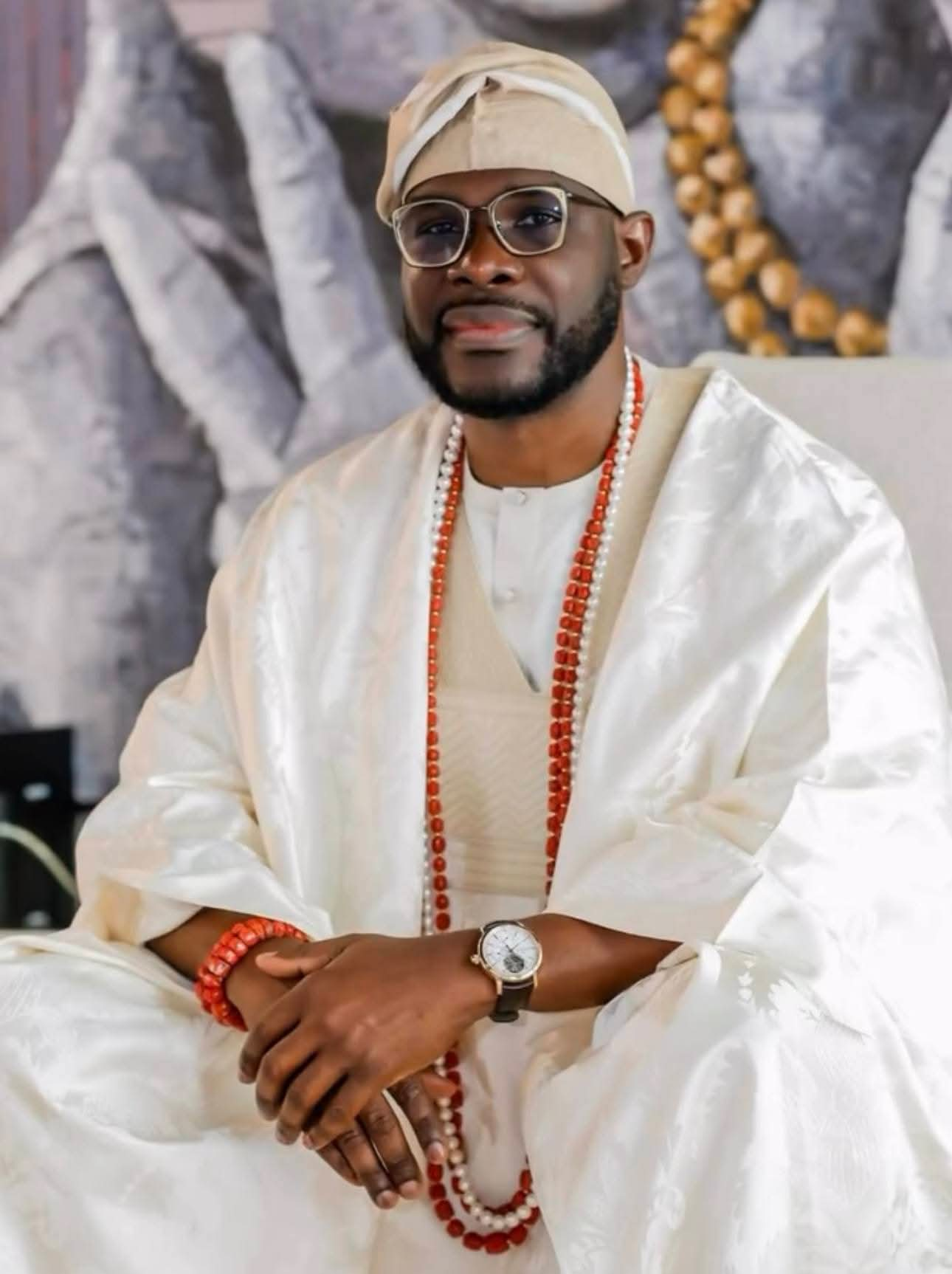The Alaafin of Oyo, Oba Akeem Owoade, on Thursday, declared that the British had signed a treaty with Alaafin recognising him as the superior head of the Yoruba Nation.
This followed a fresh crisis between the Alaafin and Ooni of Ife, Oba Enitan Ogunwusi, after the Ooni conferred the title of Okanlomo of Yorubaland on a businessman, Dotun Sanusi, during the unveiling of 2geda media networking platform, at Ilaji Hotel, Ibadan, at the weekend.
Condemning Ooni’s action on Monday, Alaafin had, in a statement by his Director of Media, Bode Durojaye, given the Ife monarch a 48-hour ultimatum to withdraw the chieftaincy title or face “the consequences”.
The Ooni has, however, kept mum on the matter, even as the ultimatum expired on Wednesday.
In a fresh statement by his media aide, Durojaye, on Thursday, the Alaafin went historical, asserting that he remains the foremost monarch in Yoruba land.
Alaafin said, “Oyo simply rose to prominence through wealth gained from trade and its military skills. It was the largest West African empire, the most important and authoritative of all the early Yoruba principalities. More so, the British, as it was in their tradition, recognised lineage as meaningful supremacy and legitimacy, preferring to sign the Treaty of Cessation with the Alaafin as the Superior Head of the Yoruba Nation.
“Alaafin has sworn to his ancestors to defend and add glamour to Yoruba tradition; he would never be in a supremacy battle with any king.
“Why does Alaafin not need to get into any battle for supremacy with any Oba, either in Yorubaland or anywhere in the universe? These immortal words of Alexander Graham Bell – The most successful men in the end are those whose success is the result of steady accretion.”
The Thursday stated that the Alaafin, “at the hallowed ground of the Yoruba ancient shrine…made a covenant with illustrious Yoruba ancestors that he would defend, protect and add glamour to the Yoruba norms and tradition.”
The statement stressed that the Alaafin “is a veritable custodian of Yoruba culture and tradition, and has always taken into consideration the safety and welfare of his subjects and will never compromise tradition, culture and development of his people for a pot of porridge.”
It stated: “The history has been so kind and friendly to Alaafin Owoade publicity since he ascended the throne of his forefathers, as he does not need to get into any battle for supremacy with any oba, either in Yorubaland or anywhere in the universe.
“The monarch operates a government that is judged by its result, as prosperity, security, and well-being of the people dictate his popularity both in the palace and in the empire at large.”
The statement also launched into heavy praises of the Alaafin, stating that: “Alaafin combines humility with royalty to meet the modern-day demands. Kabiyesi (the king who no one questions). Iku Baba Yeye (the one who commands death/he who is parent to death). Alashe (he who wields authority). Ekeji Orisha (Second-in-command to the gods). The Alaafin was inducted into the mysteries of various gods like Ifa, Sango, etc, to be the direct representative of these deities on earth.”
“At the hallowed ground of the Yoruba ancient shrine, as Owoade made a covenant with illustrious Yoruba ancestors that he would defend, protect and add glamour to the Yoruba norms and tradition. Oduduwa’s Principal minister and grandson, Oranmiyan (Because Oduduwa begot Okanbi, an only child, and Okanbi begot Oranmiyan, among others, namely Ila-Orangun, Oni-Sabe, Olu-Popo, Ala-Ketu, Oba-Benin) founded the city of Oyo when a prolonged drought struck Ile-Ife as a result of people’s emigration.
“In politics also, he is concerned about the sanctity of his position, and whatever happens on the welfare of his people. Customs and all traditional practices of today in government, religion and economic life have had distance, and possibly age-long origins which were based on valid and accepted tenets that emerged from the synthesis and aggregated experience of a particular society.
“One of such societies is the ancient city of Oyo, reputed for cultural resources that are of rich non-material and material attributes and transmitted through generations. Moreover, the precepts and concepts of Alaafin’s administration have continued to support and nurture the people’s ancient culture and sophisticated civilisation from time immemorial.
“The basic concept of government was monarchy with a rigid adherence to the monolithic Oduduwa dynasty and of the paternal line,” the statement explained.
Sheath your swords, Olugbon urges
Meanwhile, the Olugbon of Orile-Igbon, Oba Francis Alao, on Thursday, called on supporters of both the Alaafin and the Ooni to halt the ongoing media comments fuelling the controversy between the monarchs.
Oba Alao, in a statement in Ibadan on Thursday, also cautioned all Yoruba sons and daughters across the world to avoid emotional outbursts that drag the throne of the Ooni and Alaafin in the mud over what he described as speculative title conferment on Sanusi.
He said, “The latest controversy over the speculative conferment of Okanlomo of Yoruba land on one of our illustrious sons, Dotun Sanusi, who is the proprietor of Ilaji Resort and Sports Centre, Ibadan, is unnecessary.
“There is no substance in the issue because it was a mere speculation. I am in touch with both Alaafin and Ooni, and I can confirm that both traditional rulers are not interested in dragging the issue. They are both for peace and unity. I have said it before that Ooni remains Ooni, and Alaafin remains Alaafin. There is no supremacy battle.
“I, therefore, appeal to all Yoruba sons and daughters all over the world to be calm, avoid nursing any pain on the issue and stop the media comments that are dragging the controversy unnecessarily.”
The Olugbon noted that Yoruba culture is built around unity, peace, kindness, respect for others and honour for obas, saying, “Dragging one another in the media over a speculative issue runs against our moral fabrics, honour for the thrones of both obas, and the sense of togetherness that stands us out as a people.”
“Obas’ thrones are too sacred to be desecrated by all and sundry. I urge us to keep the sanctity of our thrones, which represent the totality of who we are. Let us continue to uphold the omoluabi ethos in all situations,” he said.
In a related development, a group, Think Yoruba First Ogo Adulawo Socio-Cultural Association, on Thursday, called for a more accurate and respectful representation of Yoruba culture to protect its historical legacy and identity.
Addressing a press conference, TYF’s Lead Legal Consultant, Mr. Oluwatobi Sanwo, warned that distorted narratives pose a serious threat to the intellectual integrity and global perception of Yoruba civilisation.
He explained that the conference was convened to highlight cultural defamation and historical distortion against the Yoruba people, found in a recently published academic book.
According to him, the book falsely claims that the non-Yoruba group were original inhabitants of Ile-Ife, alleging Yoruba were immigrants who usurped authority in their ancestral home.
Other falsehoods, he noted, included a fabricated empire preceding Ile-Ife, assertions unsupported by Ifa Corpus, oral traditions, or credible historical and anthropological research.
Sanwo condemned the distortions as cultural defamation, intellectual dishonesty, and potential ethnic provocation.
He stressed that Ile-Ife remained the undisputed cradle of Yoruba civilisation, recognised worldwide by scholars and authorities.
He said TYF had submitted petitions to Nigerian and international institutions, while raising public awareness to defend Yoruba heritage and intellectual truth against distortion and falsified narratives.
The association urged Yoruba people worldwide to unite in defence of Ile-Ife, while calling on the media to responsibly promote authentic Yoruba history and scholarship.
Sanwo reaffirmed TYF’s commitment to peaceful dialogue and collaboration with traditional rulers, academics, and the press, insisting Yoruba history was sacred, Ile-Ife non-negotiable, and identity indivisible.
The association also appealed to government agencies, universities, and international cultural organisations to support Yoruba scholarship, fund research, and strengthen frameworks preserving African histories and indigenous knowledge systems.
FOLLOW US ON:
FACEBOOK
TWITTER
PINTEREST
TIKTOK
YOUTUBE
LINKEDIN
TUMBLR
INSTAGRAM

 News11 hours ago
News11 hours ago
 Politics10 hours ago
Politics10 hours ago
 News11 hours ago
News11 hours ago
 News10 hours ago
News10 hours ago
 News11 hours ago
News11 hours ago
 Crime10 hours ago
Crime10 hours ago
 Politics10 hours ago
Politics10 hours ago
 News9 hours ago
News9 hours ago









































